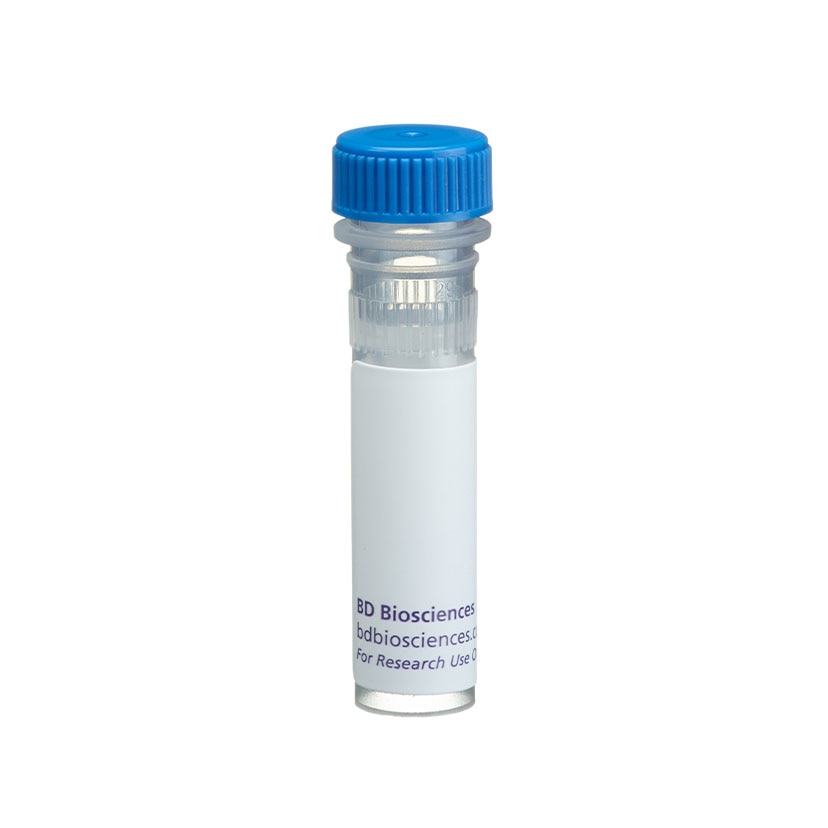-
Reagents
- Flow Cytometry Reagents
-
Western Blotting and Molecular Reagents
- Immunoassay Reagents
-
Single-Cell Multiomics Reagents
- BD® OMICS-Guard Sample Preservation Buffer
- BD® AbSeq Assay
- BD® Single-Cell Multiplexing Kit
- BD Rhapsody™ ATAC-Seq Assays
- BD Rhapsody™ Whole Transcriptome Analysis (WTA) Amplification Kit
- BD Rhapsody™ TCR/BCR Next Multiomic Assays
- BD Rhapsody™ Targeted mRNA Kits
- BD Rhapsody™ Accessory Kits
- BD® OMICS-One Protein Panels
-
Functional Assays
-
Microscopy and Imaging Reagents
-
Cell Preparation and Separation Reagents
Old Browser
This page has been recently translated and is available in French now.
Looks like you're visiting us from {countryName}.
Would you like to stay on the current location site or be switched to your location?
BD Transduction Laboratories™ Purified Mouse Anti-TAF[II]135
Clone 22/TAF[II]135 (RUO)





Western blot analysis of TAF[II] 135 on Jurkat lysate. Lane 1: 1:250, lane 2: 1:500, lane 3: 1:1000 dilution of anti-TAF[II] 135.

Immunofluorescent staining of HeLa cells.




Regulatory Status Legend
Any use of products other than the permitted use without the express written authorization of Becton, Dickinson and Company is strictly prohibited.
Preparation And Storage
Recommended Assay Procedures
Western blot: Please refer to http://www.bdbiosciences.com/pharmingen/protocols/Western_Blotting.shtml.
Product Notices
- Since applications vary, each investigator should titrate the reagent to obtain optimal results.
- Please refer to www.bdbiosciences.com/us/s/resources for technical protocols.
- Caution: Sodium azide yields highly toxic hydrazoic acid under acidic conditions. Dilute azide compounds in running water before discarding to avoid accumulation of potentially explosive deposits in plumbing.
- Source of all serum proteins is from USDA inspected abattoirs located in the United States.
Tightly associated factors (TAFs) play an essential role in transcriptional activation through their interaction with a variety of activators. TAF[II]135 (a.k.a. TAF[II]130) is a human homologue of Drosophila TAF[II]110, the first TAF shown to have coactivator activity. TAF[II]135 contains multiple glutamine-rich regions, as well as a coactivator domain (CAD). The glutamine-rich regions of TAF[II]135 facilitate interaction with Sp1 and CREB, which leads to enhancement of both Sp1- and CREB-mediated transcription. In addition, TAF[II]135 can potentiate transcriptional stimulation by AF-2 of the retinoic acid, thyroid hormone, and vitamine D3 receptors. However, TAF[II]135 does not interact with the AF-2s of the estrogen and retinoid X receptors. Interestingly, TAF[II]135 enhancement of CREB transcriptional activity may be disrupted by expanded polyglutamine (CAG) repeats found in at least eight different neurodegenerative disorders. Thus, TAF[II]135 may have important coactivator activities in many different transcription-regulating cell signaling pathways, and interference of TAF[II]135 activity by CAG repeats may be a common mechanism of specific types of neuropathologies.
Development References (4)
-
Freiman RN, Albright SR, Chu LE, et al. Redundant role of tissue-selective TAF(II)105 in B lymphocytes. Mol Cell Biol. 2002; 22(18):6564-6572. (Clone-specific: Western blot). View Reference
-
Mengus G, May M, Carre L, Chambon P, Davidson I. Human TAF(II)135 potentiates transcriptional activation by the AF-2s of the retinoic acid, vitamin D3, and thyroid hormone receptors in mammalian cells. Genes Dev. 1997; 11(11):1381-1395. (Biology). View Reference
-
Saluja D, Vassallo MF, Tanese N. Distinct subdomains of human TAFII130 are required for interactions with glutamine-rich transcriptional activators. Mol Cell Biol. 1998; 18(10):5734-5743. (Biology). View Reference
-
Shimohata T, Nakajima T, Yamada M. Expanded polyglutamine stretches interact with TAFII130, interfering with CREB-dependent transcription. Nat Genet. 2000; 26(1):29-36. (Biology). View Reference
Please refer to Support Documents for Quality Certificates
Global - Refer to manufacturer's instructions for use and related User Manuals and Technical data sheets before using this products as described
Comparisons, where applicable, are made against older BD Technology, manual methods or are general performance claims. Comparisons are not made against non-BD technologies, unless otherwise noted.
For Research Use Only. Not for use in diagnostic or therapeutic procedures.